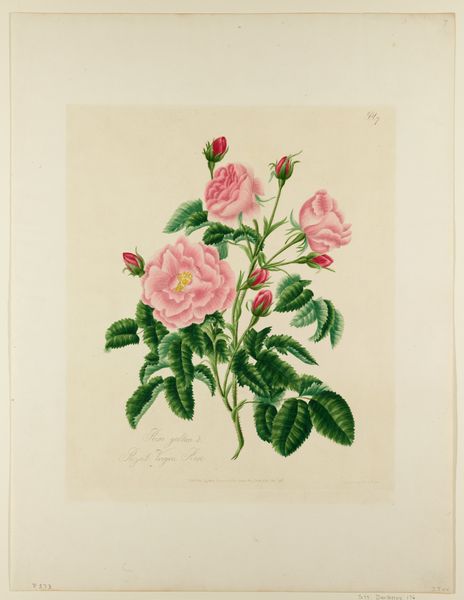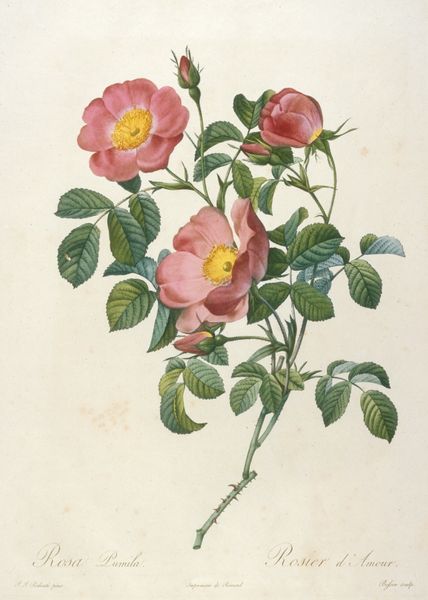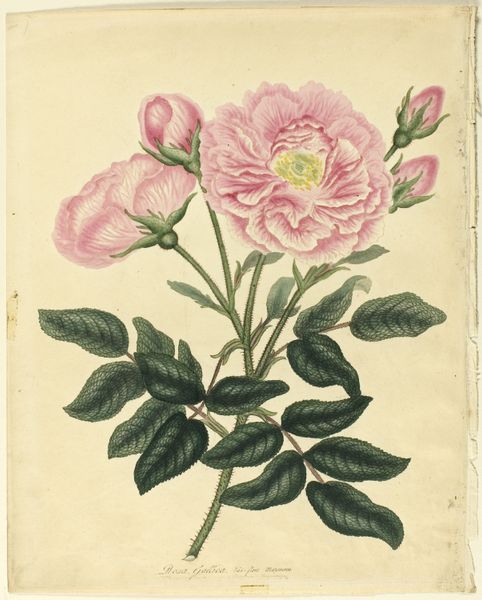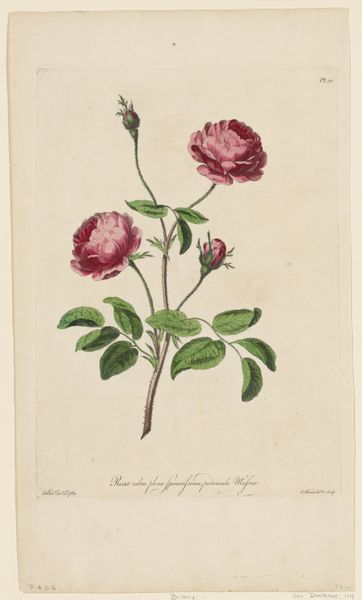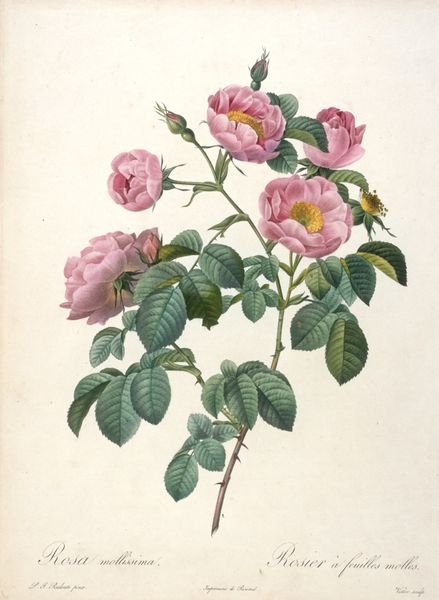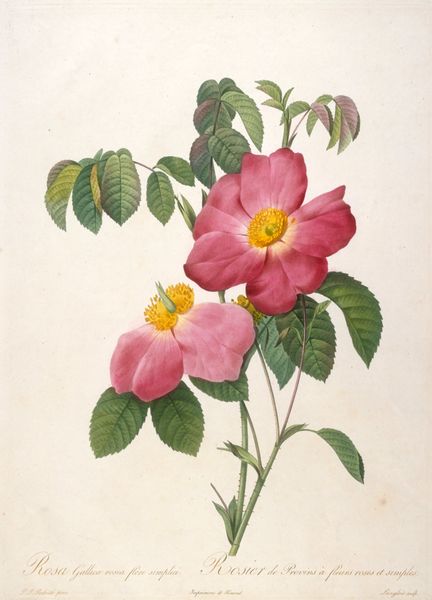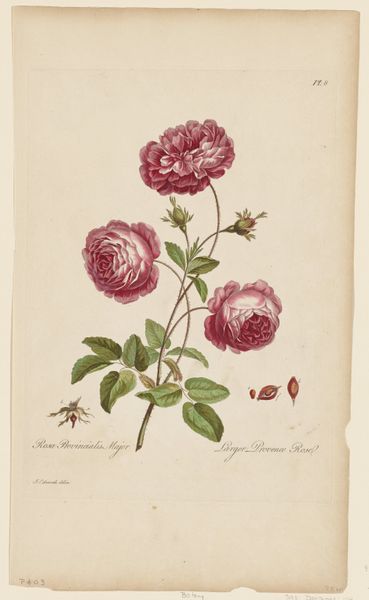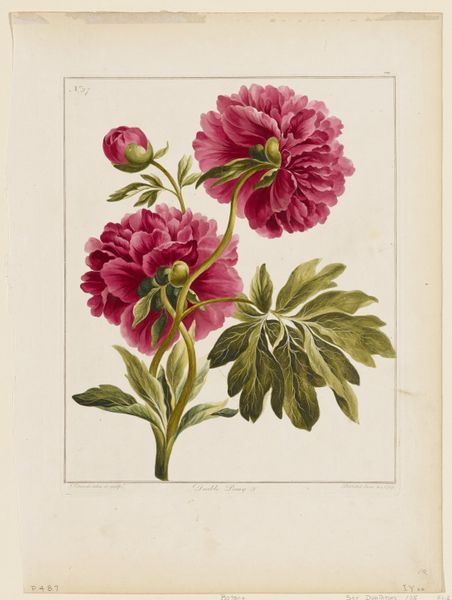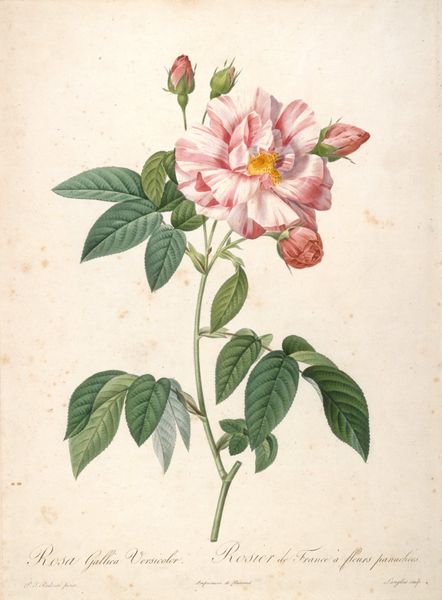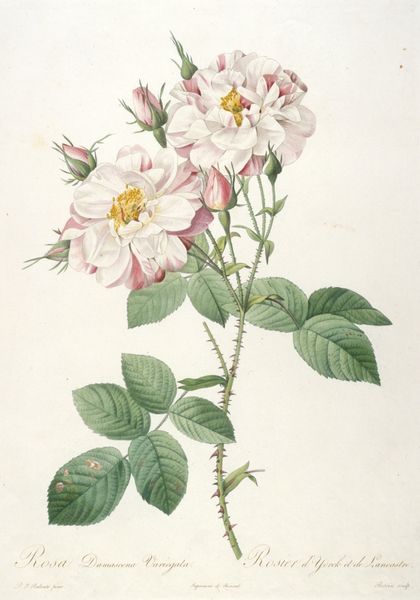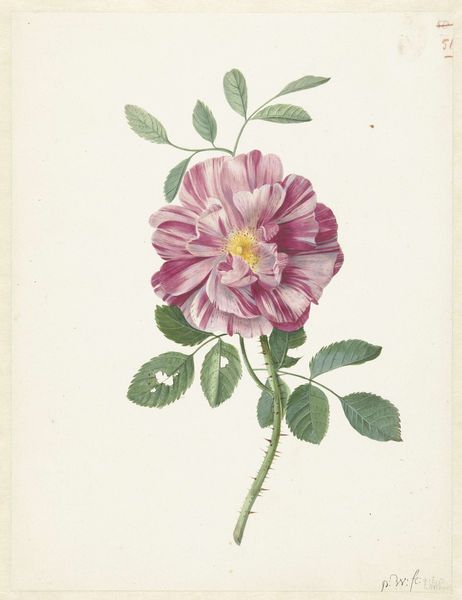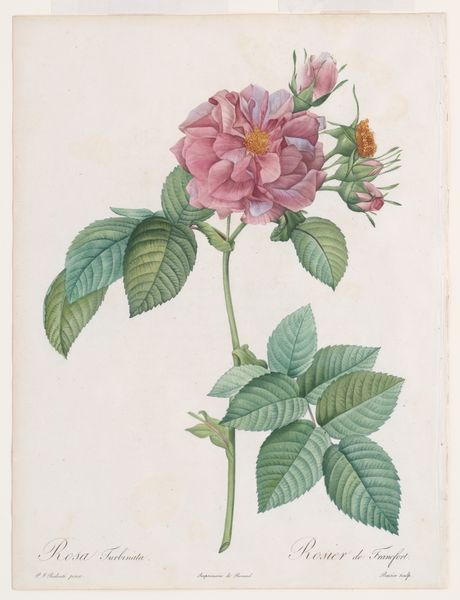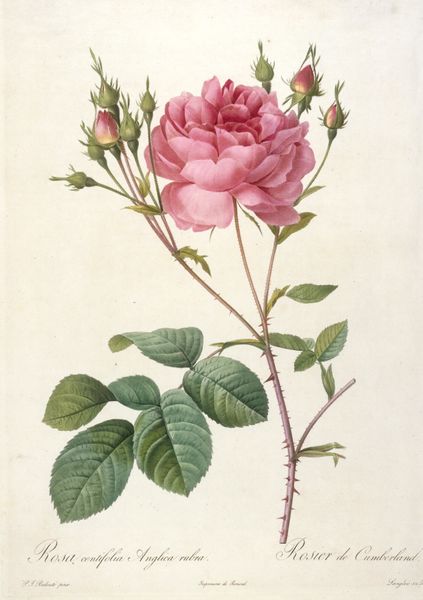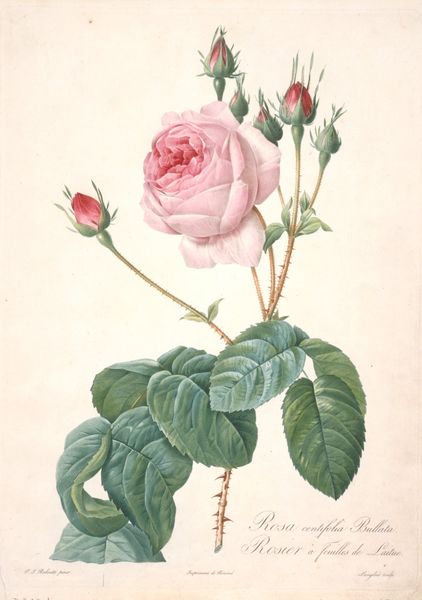
drawing, hand-colored-etching, print, watercolor
#
drawing
#
hand-colored-etching
#
egg art
# print
#
watercolor
#
watercolour illustration
#
botanical art
#
watercolor
Dimensions: 13 x 11 in. (33.02 x 27.94 cm) (plate)
Copyright: Public Domain
Editor: This is Mary Lawrence's "Rosa gallica (Gallic Rose)," created in 1798. It's a hand-colored etching with watercolor, and it has such a delicate, almost scientific feel to it. How do you interpret this work? Curator: The rose, often laden with symbolism, here feels like a statement on the natural world and perhaps a reflection of Enlightenment ideals. Consider the socio-political context of the late 18th century – what revolutionary forces were at play, and how might a seemingly simple botanical illustration intersect with those movements? Editor: That's fascinating! I hadn't thought about it in terms of revolutionary forces. So, the rose could be a symbol of… what exactly? Curator: Think about the role of women in science and art at the time. Botanical illustration was one avenue for female artists, often constrained by societal expectations. Was Lawrence simply documenting a species, or subtly claiming space in a male-dominated field? What does it mean to "hand-color" a print – imbuing a mass-produced object with a personal touch? Editor: It's almost like she's subverting the limitations of the medium. The hand-coloring adds a layer of individuality. It feels like a quiet act of rebellion. Curator: Precisely. And what about the "Gallic" in Gallic Rose? France, at that time, was undergoing radical change. Could this rose be a subtle commentary on national identity or perhaps even the fleeting nature of beauty amidst upheaval? Editor: That's a powerful connection. I had seen it as just a pretty flower, but now I see so much more complexity. Curator: Exactly! By engaging with history and theory, even a seemingly simple image reveals deeper layers of meaning, especially regarding gender, power, and societal change. Editor: This has completely changed my perspective. I will never look at botanical illustrations the same way again.
Comments
No comments
Be the first to comment and join the conversation on the ultimate creative platform.
